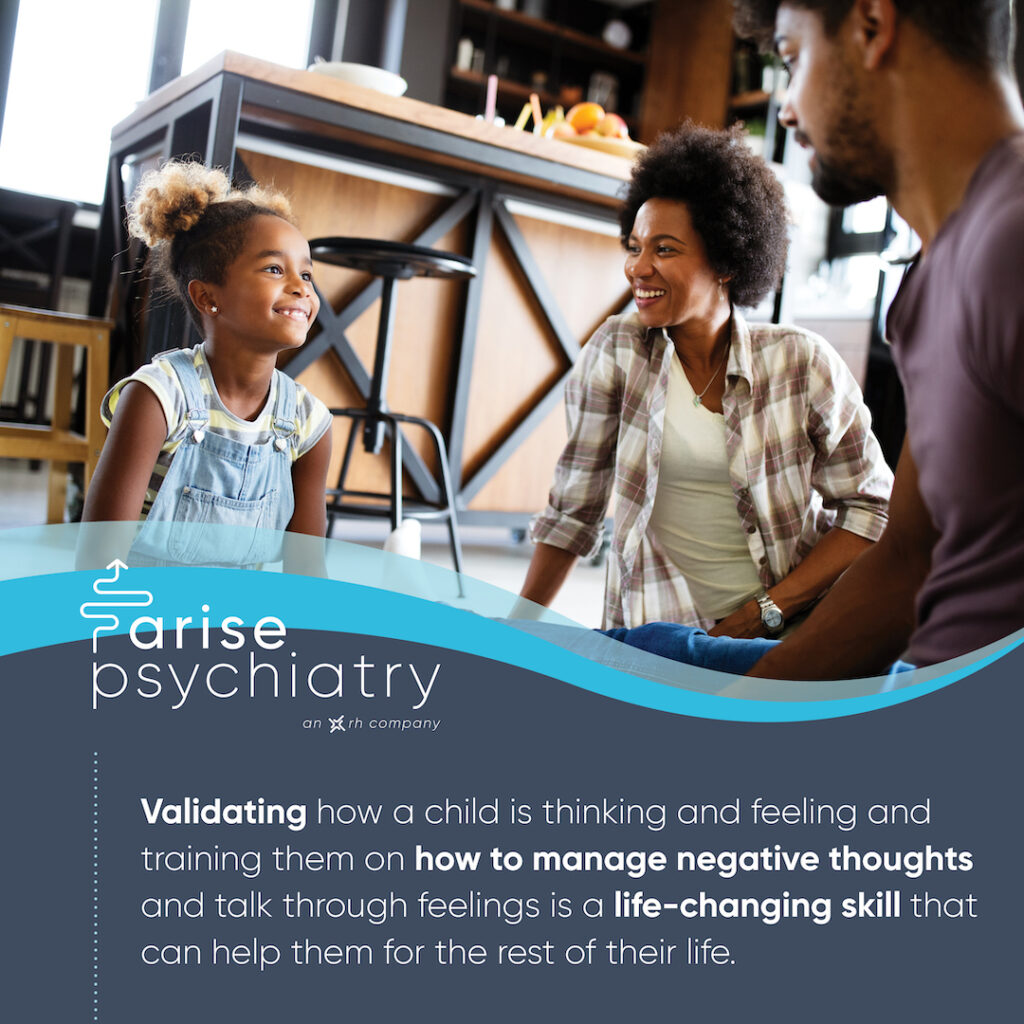In our previous blog, here, we discussed the importance of discussing and addressing mental health issues in preventing suicide. One shocking statistic is that suicide is the 2nd leading cause of death in the US for individuals ages 10 – 14. When it comes to mental health, it is critical to address harmful thoughts as early as possible so that they can be rerouted.
As a parent, especially, this can feel scary or overwhelming. It is common to joke about what issues your parents may have handed down to you, but it is true. We are all influenced in different ways, positive and negative, by our upbringing and our environment.
The good and bad news is there is no official handbook on parenting. There are plenty of guidelines and theories on parenting, but ultimately it is up to each parent to do the best they can with the resources available to us.

While we cannot tell you exactly what to say and do when it comes to your child’s mental health, we can tell you that validating how a child is thinking and feeling and training them on how to manage negative thoughts and talk through feelings is a life-changing skill that can help them for the rest of their life.

How do we recognize and talk about difficult thoughts and emotions with children and adolescents?
One thing every single person experiences early in life is the feeling of being alienated in one way, shape or form. Meaning everyone in some way has felt left out, singled out, blamed, shamed, insecure, or hurt. When children do not discuss those thoughts or are told not to discuss those thoughts, they will internalize them. This allows the thoughts to become patterns that can take over their mental well-being.
If we can start normalizing feelings and thoughts with kids, it can help create healthy thought patterns that in the long run can prevent depression and ultimately suicide. We can normalize these thoughts by simply listening and responding in an understanding and caring way such as, “I hear that you are feeling left out at school, and I am sorry you feel that way. I felt that way when I was your age and still sometimes experience that.”
When someone comes to you upset, never correct it immediately, but instead be a good listener, affirm them, and then ask questions to help focus their thoughts on the right perspective. A parent could ask, “Why do you think your friends don’t want to be around you?”
Support is so important when it comes to preventing suicide and depression, especially in younger age groups. Arise Psychiatry is proud to be the only psychiatry clinic providing integrated care for children and adolescents in the state of Mississippi. We meet with parents and children, together and separately, with flexible timeframes, allowing relationships and trust to build and create a safe space for children to work through their thoughts and needs. We provide proactive care and a wholistic plan of therapy for each family.
By: A. Johanna Lu, MD, ABPN
Psychiatrist, Co-Founder and Medical Director
#mentalhealthcareyoudeserve #suicideawareness #suicideprevention #normalizementhalhealthcare
